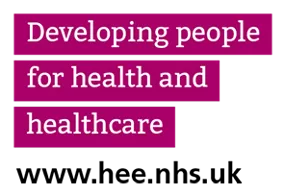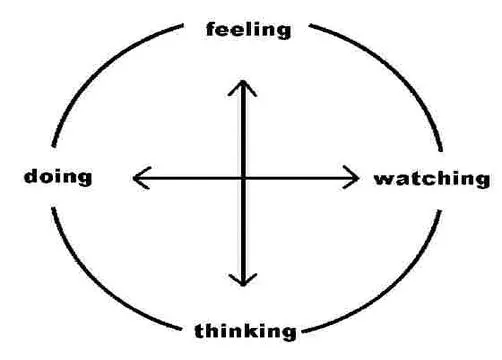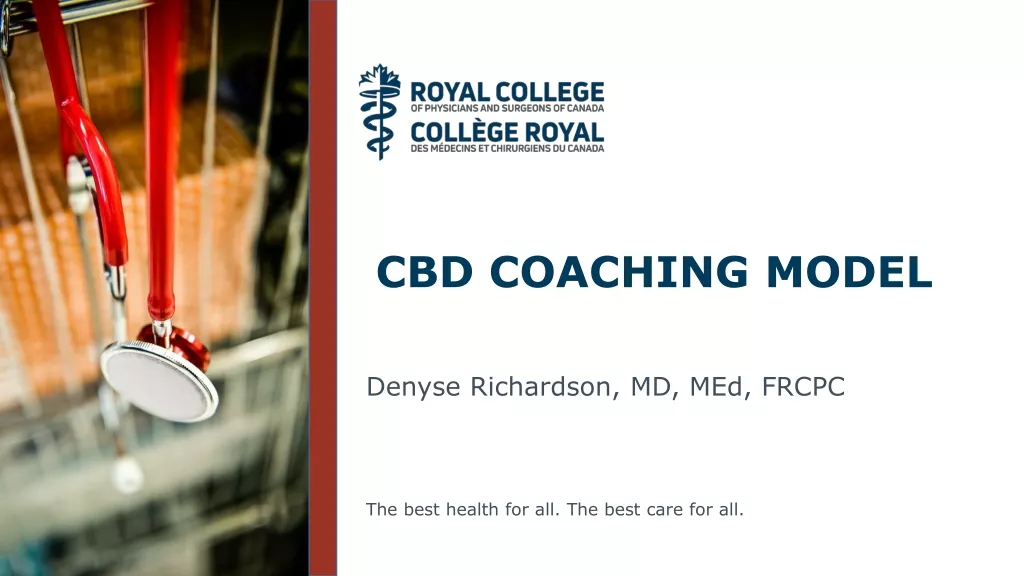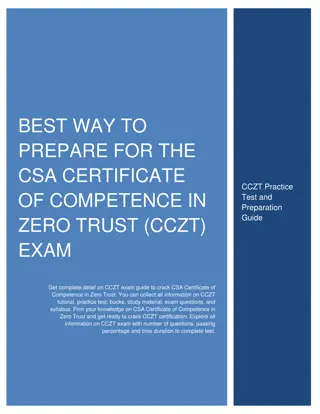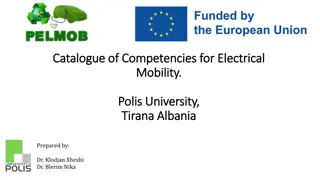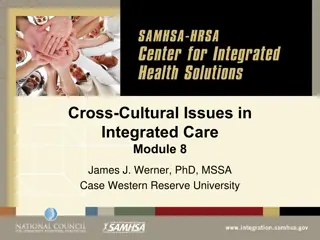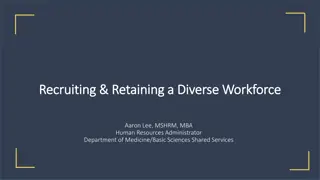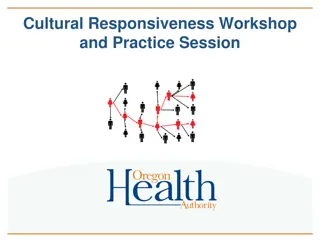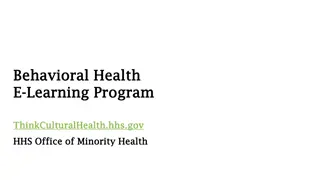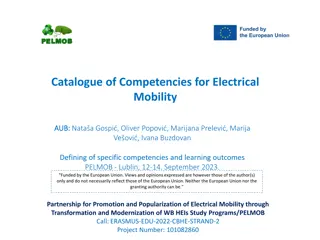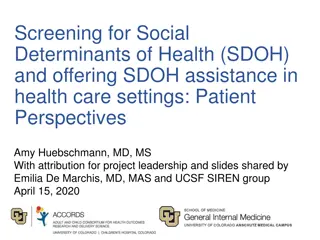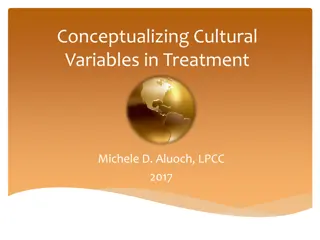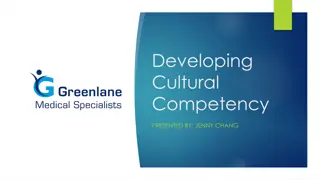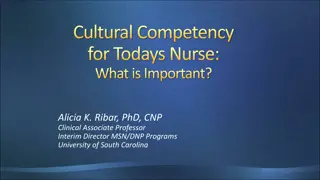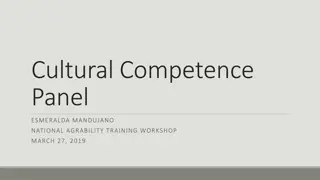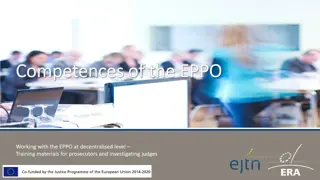Insights into Cultural Competence in Healthcare Settings
Explore the importance of cultural competence in healthcare through topics such as adapting to clinical and communication differences, understanding patient expectations, and building trust across diverse backgrounds. Learn how NHS professionals navigate hierarchies, challenges in authority, and the evolving landscape of patient care. Gain insights into self-directed learning, interactive skill development, and the journey towards becoming a trusted healthcare provider within the community.
Download Presentation

Please find below an Image/Link to download the presentation.
The content on the website is provided AS IS for your information and personal use only. It may not be sold, licensed, or shared on other websites without obtaining consent from the author.If you encounter any issues during the download, it is possible that the publisher has removed the file from their server.
You are allowed to download the files provided on this website for personal or commercial use, subject to the condition that they are used lawfully. All files are the property of their respective owners.
The content on the website is provided AS IS for your information and personal use only. It may not be sold, licensed, or shared on other websites without obtaining consent from the author.
E N D
Presentation Transcript
Working in the NHS Dr David Eadington
Learning Adult/self directed learning Learning styles - less didactic - more interactive Technical and generic skills
Expectations Hierarchies and democracies Authority and authority figures Challenging senior figures
Patient expectations of us are conflicting objectivity emotional intelligence emotional detachment Intuition competence sensitivity reliability
Trusted 2006 (%) 2008 (%) Change Doctors 92 90 -2 Teachers 88 86 -2 Judges 81 78 -3 Clergy/Priests 75 73 -2 Scientists 72 65 -7 Newsreaders 66 61 -5 Police 61 59 -2 Civil Servants 48 44 -4 Trade Unionists 41 38 -3 Ministers 22 22 0 Journalists 19 18 -1
Cultural Competence Understanding and valuing diversity Having the capacity for cultural self-assessment Being conscious of the dynamics inherent when cultures interact Having institutionalized cultural knowledge Having adaptations of service delivery reflecting understanding of cultural diversity.
Adapting Cultural Competence Clinical differences amongst people of different racial and ethnic background Communication differences in style, method and meaning in communications, even when dominant language is used well Ethics different belief systems will challenge firmly held Western beliefs inculcated through years of professional development Trust/respect different levels of trust where individuals have come from countries where authority figures have misused their positions. Respect in that some cultures will so respect a clinical authority figure that they will agree with the clinician and seek to provide acceptable answers.
Facilities & Support Chaplaincy 24 hour multi-faith service Occupational Health Service Professional Registration Responsibility to maintain registration where applicable Working Hours Set out in Terms & Conditions, employees not expected to work over 48 hours per week Internet Access Pay - paid directly into bank/building society account, details on payslip NHS Pension Scheme available to all employees between the ages of 16 and 70
Key Policies / Procedures Equality & Diversity Zero tolerance of any discrimination Attendance Expected to attend work punctually. Persistent lateness may lead to disciplinary action Sickness Absence Notify manager ASAP, follow procedure, attend review meetings. Procedures vary Capability Every effort to be made to support employees Discipline & Conduct All expected to maintain highest standards of performance and conduct, formal action for poor conduct or behaviour
Key Policies / Procedures Study Leave Based on needs of service, must obtain authorisation from manager Annual Leave Based on NHS service, must obtain authorisation from manager Grievances & Disputes Right to raise concerns and to have concerns dealt with promptly, informal resolution wherever possible Whistle blowing Encouraged to express concerns at an early stage to manager, HR or Trade Union representative Harassment & Bullying Zero tolerance of any harassment or bullying All HR policies and procedures on Trust Intranet






